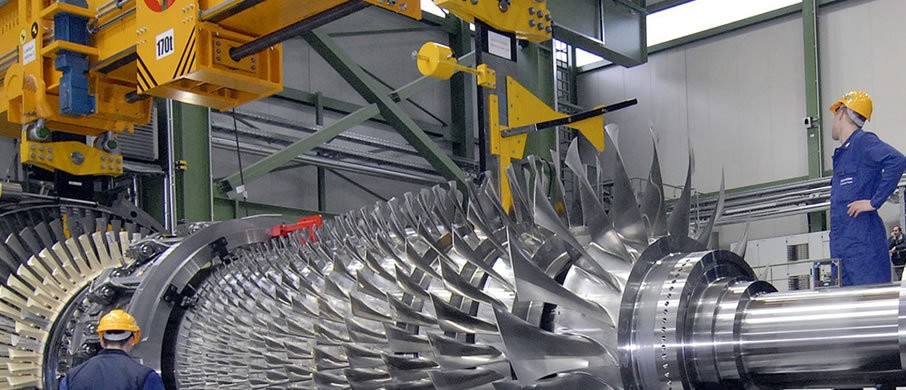
cypruswell
Literature for everyoneEmpowering Tomorrow: Innovations in Power Plant Services for a Sustainable Future
Thursday , 11, April 2024 Business and Management Comments Off on Empowering Tomorrow: Innovations in Power Plant Services for a Sustainable FutureImage Source: Google
In today's rapidly evolving world, the energy demand continues to increase, and the need for sustainable solutions has never been more critical. Power plants play a vital role in meeting this demand while also addressing environmental concerns. As we look to the future, innovations in power plant services are paving the way for a more sustainable energy landscape.
These advancements are not only improving the efficiency and reliability of power generation but also reducing the environmental impact of traditional energy sources. Let's explore some of the key innovations that are shaping the future of power plant services.
The Rise of Renewable Energy Integration
One of the most significant trends in power plant services is the integration of renewable energy sources into traditional power systems. This shift towards renewables, such as solar, wind, and hydropower, is key to reducing greenhouse gas emissions and mitigating the effects of climate change. Power plants are increasingly incorporating these clean energy sources into their operations to create a more sustainable energy mix.
Benefits of Renewable Energy Integration:
- Reduces greenhouse gas emissions
- Promotes energy independence
- Diversifies the energy mix
- Helps meet sustainability goals
Challenges and Solutions:
- Intermittency of renewable sources – Energy storage solutions like batteries and pumped hydro storage help store excess energy for use during low generation periods.
- Grid integration – Advanced grid technologies and smart grid systems enable seamless integration of renewable energy into existing power systems.
- Cost competitiveness – Continued advancements in renewable technologies are driving down costs and making clean energy more affordable.
Digitalization and Automation
The digital revolution has transformed the power plant industry, enabling operators to optimize performance, increase efficiency, and reduce downtime. Digital technologies, such as Internet of Things (IoT) sensors, data analytics, and machine learning, are being leveraged to monitor plant operations in real-time and make data-driven decisions for improved outcomes.
Advantages of Digitalization:
- Enhanced operational efficiency
- Predictive maintenance to minimize downtime
- Improved asset performance and lifespan
- Enhanced safety for plant personnel
Implementation Challenges:
- Data security and privacy concerns
- Integration with legacy systems
- Skills gap in managing digital technologies
- Initial investment costs
Decarbonization through Carbon Capture and Storage (CCS)
Carbon capture and storage technologies are playing a crucial role in reducing greenhouse gas emissions from power plants that rely on fossil fuels. CCS involves capturing carbon dioxide emissions from power plants and industrial facilities, transporting the CO2 to storage sites, and injecting it underground for long-term sequestration. This process helps prevent CO2 from entering the atmosphere and contributing to global warming.
Benefits of CCS:
- Significantly reduces carbon emissions
- Enables continued use of fossil fuels with lower environmental impact
- Supports climate change mitigation efforts
- Creates new economic opportunities in the carbon capture industry
Barriers to Adoption:
- High upfront costs of CCS technology
- Lack of infrastructure for CO2 transport and storage
- Regulatory uncertainties and policy support
- Public acceptance and perception of CCS
Advancements in Energy Storage
Energy storage plays a crucial role in balancing supply and demand in the power grid, especially with the increasing integration of intermittent renewable energy sources. By storing excess energy during periods of low demand and releasing it during peak hours, energy storage systems help enhance grid stability and reliability.
Types of Energy Storage Technologies:
- Lithium-ion batteries
- Pumped hydro storage
- Flywheel energy storage
- Compressed air energy storage
Benefits of Energy Storage:
- Facilitates integration of renewable energy
- Improves grid resilience and reliability
- Reduces energy costs by peak shaving
- Supports emergency backup power
Empowering tomorrow through innovations in power plant services is essential for building a sustainable energy future. By embracing renewable energy integration, digitalization, carbon capture and storage, and advancements in energy storage, power plants can play a pivotal role in mitigating climate change and ensuring a reliable energy supply for generations to come.
